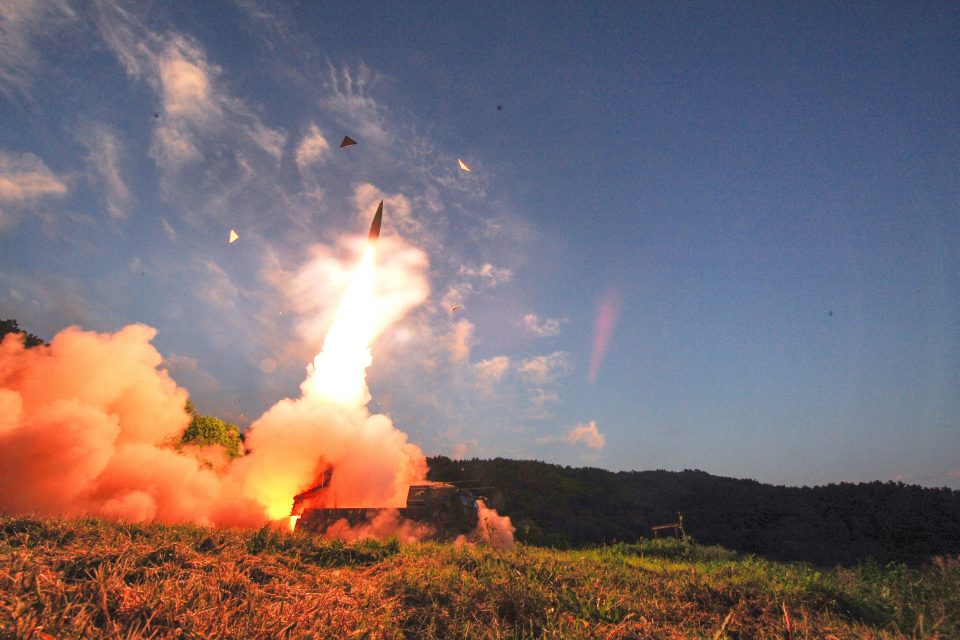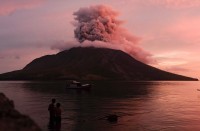
South Korea launched a ballistic missile exercise on September 4 in response to Pyongyang’s provocative detonation of what it claimed was a miniaturized hydrogen bomb. / AFP /
TOKYO, Japan (AFP) – Japan and China said Monday they had not yet detected any atmospheric radiation from North Korea’s nuclear test, amid fears of a leak from a “cave in” during the underground blast.
Japan’s top government spokesman Yoshihide Suga told reporters there was “nothing special detected from monitoring posts across the country,” nor from air samples taken by the Air Self-Defense Force after Sunday’s blast.
China’s environment ministry said Monday that radiation levels near its Korean border were also normal.
“Results of monitoring make clear that this North Korean nuclear test as of now has produced no effect on our nation’s environment or the public,” the ministry wrote on its official website.
Japanese defense minister Itsunori Onodera said Sunday that Tokyo had deployed “sniffer” planes capable of detecting radioactive particles.
Fears of a leak from North Korea’s detonation of what it claimed was a hydrogen bomb came after Chinese monitors detected a second tremor shortly after the initial earthquake triggered by the blast.
The monitors said the second tremor, of 4.6 magnitude, could be due to a “collapse (cave in),” suggesting the rock over the underground blast had given way.
The resulting explosion was considerably larger than previous tests and was felt by residents in Chinese cities hundreds of kilometers (miles) from the North’s border. (Agence France-Presse)







